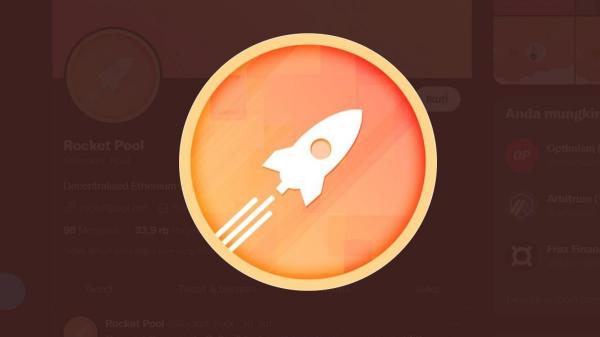
In today’s rapidly evolving blockchain world, decentralized staking has become a popular choice for many investors and users. As a new decentralized staking protocol, Rocket Pool (RPL) token is simplifying the adoption of Ethereum 2.0 in its own unique way and providing users with a safe and efficient staking solution.
Rocket Pool’s Mission
Rocket Pool’s development team took a deep dive into the Ethereum 2.0 network and realized that many users faced high barriers to staking and technical challenges. In order to become a verification node, users need to stake 32 ETH, which is a considerable burden for many investors. In order to solve this problem, Rocket Pool has proposed an innovative solution that allows users to become verification nodes by staking only 16 ETH, lowering the threshold for participation.
Simplify the staking process
Challenges with Hardware Requirements: Becoming a staking node on Ethereum requires a stable network connection, which makes it difficult for many users. Whenever a node is disconnected from the network, it suffers a penalty. Rocket Pool reduces users’ risks by spreading losses across the entire loan pool, allowing more nodes to participate from around the world.
Open Community Participation: Another great advantage of Rocket Pool is its openness. Anyone can join this decentralized node operation network by meeting minimum staking requirements, without any credit or background checks, and without providing personal data, making the entire process more secure and private.
Advantages of Liquidity Staking
In today’s DeFi ecosystem, liquidity staking protocols attract a large number of users. Rocket Pool allows users to earn returns while enjoying rising exchange rates. This strategy not only supports tax reporting but also saves users accounting work.
Security and Risk Management: Rocket Pool’s security is one of its main advantages. The network has open source code, and the development team invites the community to review the system and has successfully passed smart contract audits many times. These properties, combined with the network’s redundant and decentralized structure, make Rocket Pool a popular choice among users and developers.
Minimize the risk of penalties: Penalties are a major concern for stakeholders and network nodes today. In the Rocket Pool protocol, penalties incurred by node operators will be directly deducted from their income relative to ETH holders, such socialized losses minimize the financial losses of a single node operator.
Passive income opportunities
Passive income should be at the forefront of everyone's financial strategy. Rocket Pool easily achieves passive income through staking protocols, supporting ETH and RPL staking pools. Anyone can earn commissions from staking pool rewards by providing RPL collateral.
Non-custodial security: Rocket Pool is a non-custodial platform, which further adds to the overall security of the protocol. Users do not need to provide funds, so you still have control over your assets before peer-to-peer transactions are executed, thus preventing losses due to unavailability of funds.
How Rocket Pool works: Rocket Pool operates as a decentralized node operating network designed to lower the barrier to entry for ETH 2.0 validation. The protocol enables users to deploy rETH across the entire spectrum of the Ethereum DeFi ecosystem to maximize returns.
The role of smart nodes
Smart node software is one of the important components of the Rocket Pool environment. The software makes it easy for any group, business or operator to maintain nodes and earn more rewards by staking ETH. The software can be downloaded and used for free, reducing user participation costs.
Functions of RPL tokens: RPL tokens are the main utility tokens of the Rocket Pool network. Users need to hold RPL to participate in the functions of the system. Staking RPL can earn passive rewards and serve as reward tokens, allowing users to enjoy compound interest returns.
When you stake your tokens, you receive the liquid staking token rETH, the value of which will increase with liquidity in the pool, and you can also use it across the entire ERC-20 DeFi space to secure additional ROI.
Rocket Pool’s History: Rocket Pool initially entered the market as a concept based on Mauve Paper in 2016. Its founder Darren Langley has over 17 years of experience in the business sector and remains a core member of the project.
Summarize
Rocket Pool’s smart strategy has attracted many long-term ETH holders, allowing them to earn safe returns on their tokens. With the launch of ETH 2.0 and good community response to the upgrade, Rocket Pool is expected to see even more adoption. This is not only an opportunity for investors, but also an important step in promoting the development of the entire blockchain ecosystem.